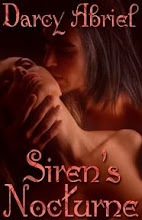
Started reading a book the other day, "The Spell of the Sensuous" by David Abram. It's a nonfiction, rather scholarly book, coming under the subject heading of "nature/philosophy." I was looking for a book in relation to human spirit and the natural environment.
In the chapter I'm reading this morning, "The Flesh of Language," I found this passage particularly noteworthy, and wanted to share it.
"We thus learn our native language not mentally but bodily. We appropriate new words and phrases first through their expressive tonality and texture, through the way they feel in the mouth or roll off the tongue, and it is this direct, felt significance--the taste of a word or phrase, the way it influences or modulates the body--that provides the fertile, polyvalent source for all the more refined and rarefied meanings which that term may come to have for us."
I love words and how they work together and how evocative they can be. The sensations that can erupt from the use of a single word, or a phrase woven together.
Language at its core can be a primal thing. When an infant utters that first cry when he or she emerges into the world, this is not a learned response. It is a response to a bodily event. It comes from within, not without, yet it is a response to exit from that safe, warm environment of a mother's womb, into a larger, unknown environment. For that small individual, the utterance of that first cry represents many things, none of them actually learned. It is instinct at its most basic level. A reaction to altered bodily state and the spark of recognition to that state.
A cry--pain, happiness, despair, joy, anger, surprise, ecstasy. That sound--the word "cry" is so much more--that bit of language is represented differently for each emotion, each sensation, each experience.
"He cried out," informs us little of the experience. "He shouted for joy." "She sobbed," "He groaned," "The drawn out unearthly howl echoed through the moonless black night." "His bitter words scorched her with the fury of his anger."
Words are not simply words. Nor is a phrase or sentence just a bunch of words to trip the story along. Nor should they be a mimic of some other story that one thinks fits the scene. Language has to be real to these characters in this story, in this moment. Time, space, moment, era, world, instinct, sensation. Shy, bold, brash, demure, aggressive, dominant, submissive, sophisticated, extrovert, introvert, slave, master, powerful, sly, coarse, smooth, Caucasian, Hispanic, African-American, Native American, Black, White, Asian, man, woman, child, infant, ghost, shapeshifter, wolf, bird, fish, merman...Quentopian, Orictan... or any combination. How will the cry differ? I want to feel the words in my bones. I want to taste its color. Let me experience the words deep into my soul. I want them to grip to squeeze, my heart and mind.













No comments:
Post a Comment